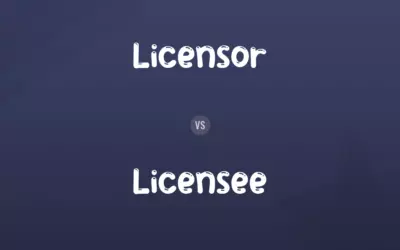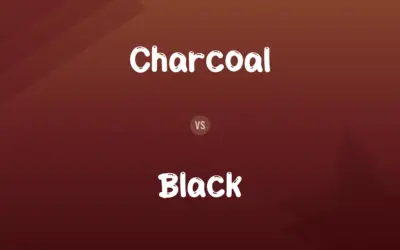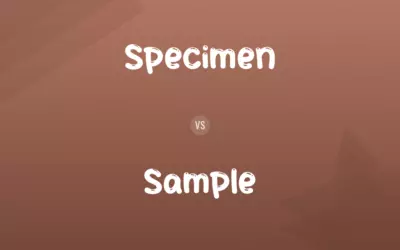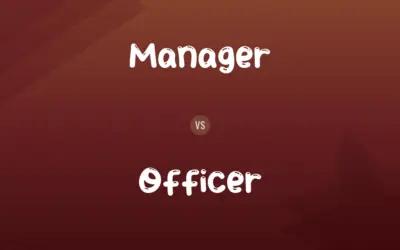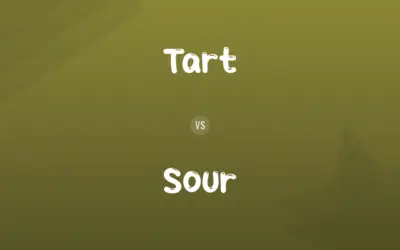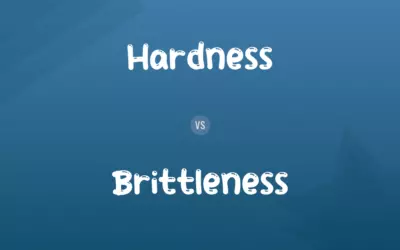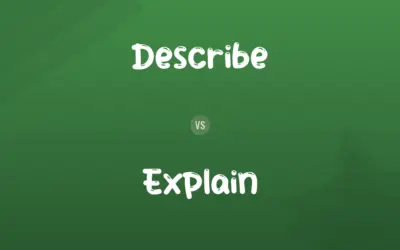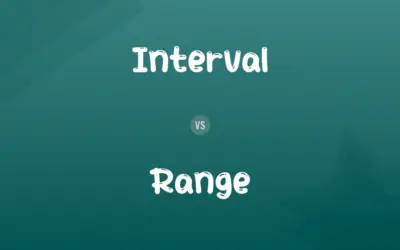Fable vs. Folktale: Difference and Comparison
By Muazma Batool & Muneeza Rehman — Published on May 21, 2024
Fable uses animals as characters to convey moral lessons, whereas a folktale is a traditional story passed through generations, often embodying cultural values.
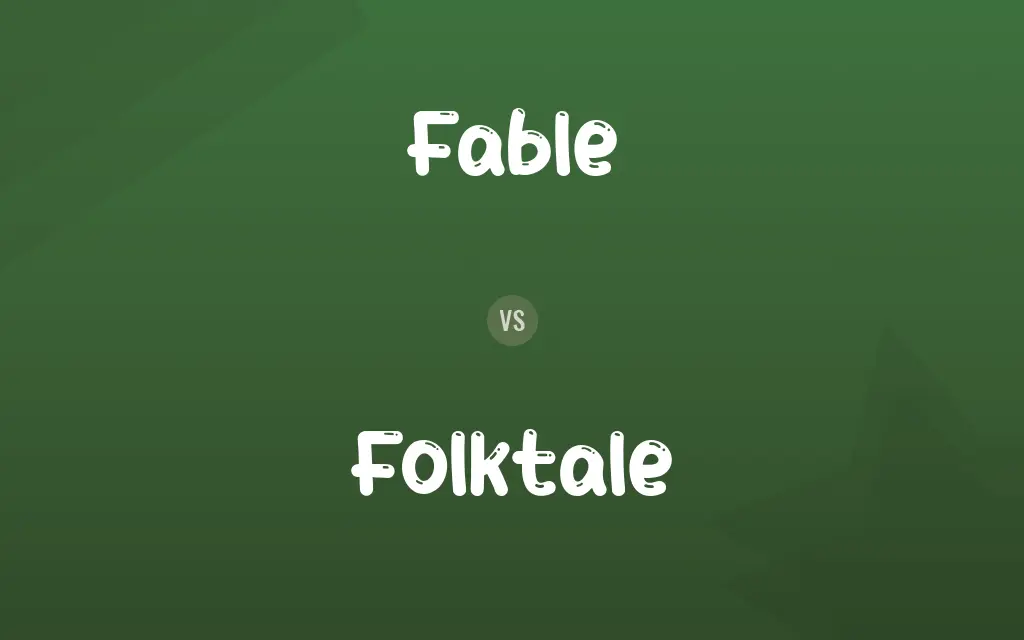
Difference Between Fable and Folktale
A fable is a specific type of short story that typically features animals, mythical creatures, or inanimate objects with human traits, designed to impart a moral lesson to its readers. On the other hand, a folktale is a narrative that is rooted in the traditions and culture of a people, often passed down orally through generations, and may not necessarily include a moral lesson.
Muazma Batool
May 21, 2024
Fables are often very concise, with the story directly revolving around a simple moral or ethical message. They are crafted to teach a specific lesson about life or behavior. Whereas folktales can be more elaborate and serve multiple purposes such as entertainment, cultural preservation, or imparting societal values and norms without directly stating a moral.
Muazma Batool
May 21, 2024
The characters in fables are almost always non-human, although they exhibit human-like emotions and behaviors. This anthropomorphism makes the moral of the story stand out more clearly and memorably. In contrast, folktale characters can be human or supernatural beings, reflecting the diverse tapestry of the culture from which they originate.
Muazma Batool
May 21, 2024
In fables, the conclusion typically emphasizes the moral lesson, often explicitly stated at the end of the story. This makes it easy for children and adults alike to grasp the intended teaching. On the other hand, the endings of folktales might focus on resolving a conflict or a puzzle, or they may end with a cliffhanger or an open-ended question, reflecting the storytelling style of the culture.
Muazma Batool
May 21, 2024
The simplicity of fables makes them highly accessible and often used as educational tools in early childhood education. Folktales, while also used in education, are primarily vehicles for cultural expression and identity, often embedded with historical contexts and complex plotlines that require interpretation.
Elijah
May 21, 2024
Fable vs. Folktale Comparison Chart
Origin
Attributed to specific authors (e.g., Aesop)
Anonymous, passed down orally
Muazma Batool
May 21, 2024
Fable vs. Folktale Definitions
◉Fable
A tool used in moral education.
Fables are often used to teach children about ethics and values.
Muazma Batool
Apr 30, 2024
◉Folktale
A traditional story passed down orally from generation to generation.
The folktale of Cinderella has been told in many cultures around the world.
Muazma Batool
Apr 30, 2024
◉Fable
An allegorical tale.
The fable of the lion and the mouse teaches about kindness and gratitude.
William
Apr 30, 2024
◉Folktale
A means of entertainment and moral instruction in a cultural context.
Folktales are used to gather communities and share age-old wisdom.
Lucas
Apr 30, 2024
◉Fable
A short story that typically features animals as characters and ends with a moral.
In the fable The Tortoise and the Hare, slow and steady wins the race.
Kaitlyn
Apr 30, 2024
◉Folktale
A story with characters that embody societal values.
The hero in many folktales exemplifies courage and honesty.
Lucas
Apr 30, 2024
◉Fable
A literary genre dedicated to moral instruction.
Aesop's fables are still taught in schools today.
Muazma Batool
Apr 30, 2024
◉Folktale
A tale often involving elements of magic or the supernatural.
In folktales, witches, giants, and magical creatures are common.
Muazma Batool
Apr 30, 2024
◉Fable
A narrative form where non-human characters speak and behave like humans.
In many fables, animals can talk and reason as humans do.
Muazma Batool
Apr 30, 2024
◉Folktale
A narrative that forms part of the cultural heritage of a community.
Folktales often include elements of historical events peculiar to a region.
Leo
Apr 30, 2024
◉Fable
A usually short narrative making an edifying or cautionary point and often employing as characters animals that speak and act like humans.
Muazma Batool
Apr 29, 2024
◉Folktale
A tale or story that is part of the oral tradition of a people or a place.
Muazma Batool
Apr 29, 2024
◉Folktale
A tale circulated by word of mouth among the common folk, especially one forming part of the tradition of a culture.
Muazma Batool
Apr 29, 2024
◉Fable
A fictitious narrative intended to enforce some useful truth or precept, usually with animals, etc. as characters; an apologue. Prototypically, Aesop's Fables.
Kaitlyn
Apr 29, 2024
◉Fable
The plot, story, or connected series of events forming the subject of an epic or dramatic poem.
Muazma Batool
Apr 29, 2024
◉Fable
To compose fables; hence, to write or speak fiction; to write or utter what is not true.
Jonathan
Apr 29, 2024
◉Fable
To make up; to devise, and speak of, as true or real; to tell of falsely; to recount in the form of a fable.
Muazma Batool
Apr 29, 2024
◉Fable
A Feigned story or tale, intended to instruct or amuse; a fictitious narration intended to enforce some useful truth or precept; an apologue. See the Note under Apologue.
Jotham's fable of the trees is the oldest extant.
Levi
Apr 29, 2024
◉Fable
The plot, story, or connected series of events, forming the subject of an epic or dramatic poem.
The moral is the first business of the poet; this being formed, he contrives such a design or fable as may be most suitable to the moral.
Elijah
Apr 29, 2024
◉Fable
Any story told to excite wonder; common talk; the theme of talk.
We grewThe fable of the city where we dwelt.
Jonathan
Apr 29, 2024
◉Fable
Fiction; untruth; falsehood.
It would look like a fable to report that this gentleman gives away a great fortune by secret methods.
Muazma Batool
Apr 29, 2024
◉Fable
To compose fables; hence, to write or speak fiction ; to write or utter what is not true.
Vain now the tales which fabling poets tell.
He fables, yet speaks truth.
Leo
Apr 29, 2024
◉Fable
To feign; to invent; to devise, and speak of, as true or real; to tell of falsely.
The hell thou fablest.
Kaitlyn
Apr 29, 2024
Fable vs. Folktale Frequently Asked Questions
How do fables and folktales differ in purpose?
Fables are intended to teach ethical lessons, whereas folktales serve to entertain and instill cultural values.
Muazma Batool
May 21, 2024
Can fables and folktales both use supernatural elements?
Generally, fables do not include supernatural elements, focusing instead on animal characters with human traits, while folktales often involve magic and supernatural beings.
Nolan
May 21, 2024
What is a folktale?
A folktale is a narrative passed down orally, embodying the cultural, social, and moral fabric of a community.
Muazma Batool
May 21, 2024
How are fables structured?
Fables are concise with a clear moral at the end, making the lesson straightforward and memorable.
Lucas
May 21, 2024
What narrative techniques are common in folktales?
Folktales often include storytelling devices like repetition, cumulative structure, and rhetorical elements to enhance memorability and entertainment.
Muazma Batool
May 21, 2024
How do the characters in folktales differ from those in fables?
Characters in folktales can be more diverse, ranging from ordinary humans to fantastical creatures, reflecting the broader narrative scope of the genre.
Muazma Batool
May 21, 2024
How do folktales reflect the history of a people?
Folktales often incorporate historical landmarks, events, or figures, subtly coded into the narrative, reflecting the historical experiences of the community.
Muazma Batool
May 21, 2024
Why are animals commonly used in fables?
Animals in fables help to abstract the moral lesson, making it universal and easier to understand across different cultures.
Elijah
May 21, 2024
Are fables found worldwide?
Yes, while varying in content and characters, the format of fable is a global phenomenon, with each culture having its own versions.
Muazma Batool
May 21, 2024
What is a fable?
A fable is a brief story used to teach a moral lesson, typically with animals as characters.
Muazma Batool
May 21, 2024
What educational value do fables have?
Fables are particularly valued in education for their simplicity and clear moral lessons, making them suitable for teaching values to young children.
Muazma Batool
May 21, 2024
Are folktales important for cultural identity?
Yes, folktales play a crucial role in preserving and conveying the traditions and values of a culture.
Muazma Batool
May 21, 2024
Do fables have known authors?
Some fables, like those of Aesop, have attributed authors, unlike most folktales, which are traditionally anonymous.
Lucas
May 21, 2024
How do the morals in fables and folktales differ?
Fable morals are direct and didactic, while folktales might convey morals more indirectly, if at all, focusing instead on broader cultural values.
Olivia
May 21, 2024
Can folktales change over time?
Yes, as oral traditions, folktales evolve with the society, adapting to the values, norms, and conditions of the people retelling them.
William
May 21, 2024
Content Creators
Written by
Muazma BatoolAs a content editor, Muazma Batool is not just a grammar guru but a creative mastermind who breathes life into every word. With an eagle eye for detail and a passion for storytelling, she transforms bland text into engaging content that captivates audiences and drives results.
Co-written by
Muneeza RehmanAt Comparisons.wiki, Muneeza skillfully navigates the vast sea of information, ensuring clarity and accuracy as the lead content editor. With a keen eye for detail, she curates every comparison to enlighten and engage readers.




